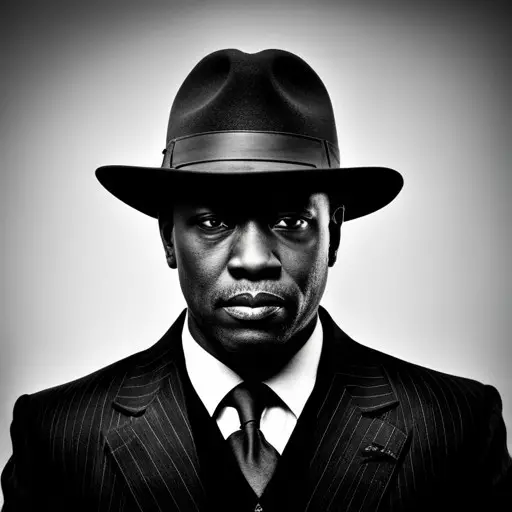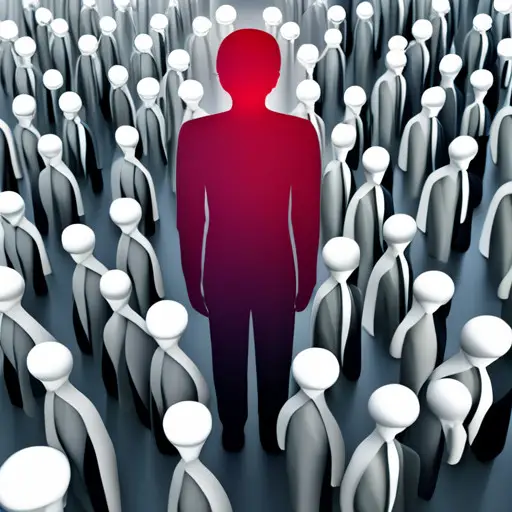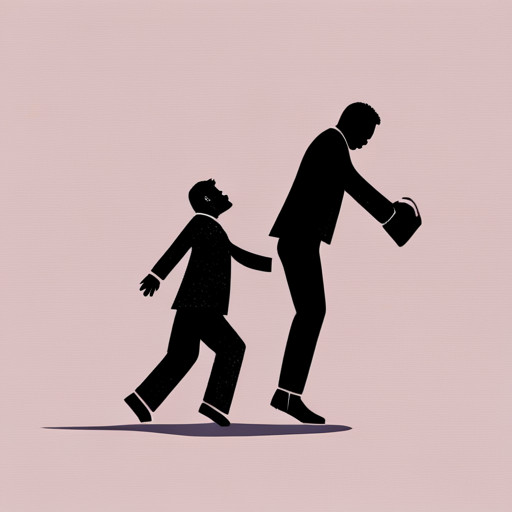Do you ever feel like you’re not strong enough? Do you worry that others may judge you as weak? The term ‘weak man’ has been used throughout history to describe individuals who are deemed inferior or inadequate in some way. However, the definition and perception of weakness have evolved over time, and labeling someone as weak can have harmful effects on their mental health and overall well-being.
In this article, we will explore the historical and cultural context of the term ‘weak man’ and how it has changed over time. We will also examine the harmful effects of labeling individuals as weak and why it is important to embrace diversity and individuality. By understanding these issues, we can move towards a more inclusive and empathetic society where everyone feels valued regardless of their perceived strengths or weaknesses.
Key Takeaways
– The term ‘weak man’ has historical and cultural connotations that are rooted in societies’ expectations of physical strength as a symbol of masculinity.
– Toxic masculinity in Western cultures has led to the belief that emotion or sensitivity is weakness, perpetuating harmful stereotypes and discouraging individuals from asking for help or admitting struggles.
– However, there has been a recent shift towards redefining masculinity and breaking down harmful stereotypes, with a focus on embracing qualities like compassion and emotional intelligence as strengths.
– Labeling someone as weak can have negative effects on their self-image, self-esteem, and mental health, and can also reinforce harmful stereotypes about certain groups. Embracing diversity and individuality is crucial for a more inclusive society with greater understanding and empathy.
Historical and Cultural Context of the Term “Weak Man”

The term ‘weak man’ has a complex historical and cultural context, which can be traced back to various societal norms and expectations. In many traditional societies, men were expected to be the sole breadwinners of their families and display physical strength as a symbol of masculinity. Any deviation from this norm was considered unacceptable and weak.
This perception of weakness was further reinforced by the prevalence of toxic masculinity in Western cultures. Men were taught to suppress their emotions, show no vulnerability, and exhibit dominance over women. This led to the belief that any display of emotion or sensitivity was a sign of weakness, making it difficult for men to express themselves freely.
However, in recent years there has been a shift towards redefining masculinity and breaking down these harmful stereotypes. The definition and perception of weakness have evolved to include qualities such as compassion, empathy, and emotional intelligence. Men are now encouraged to embrace their vulnerabilities, seek help when needed, and challenge traditional notions of what it means to be strong.
Evolution of the Definition and Perception of Weakness

You might have thought that weakness was always perceived the same way, but as society has evolved, so has our understanding of what it means to be vulnerable or lacking in strength. One could argue that weakness is like a chameleon, constantly adapting to fit within the cultural norms and expectations of each era. For instance:
– In ancient times, physical strength was highly valued as it was necessary for survival and protection. Therefore, anyone who lacked physical prowess was considered weak and inferior.
– During the Victorian era, emotional vulnerability was frowned upon, especially for men who were expected to uphold a stoic demeanor at all times. Thus, showing emotions or seeking help when struggling with mental health issues was seen as a sign of weakness.
– Nowadays, there is more awareness about mental health and its impact on individuals’ well-being. Consequently, seeking therapy or taking medication for mental illnesses is becoming more accepted and even encouraged by some.
However, despite these changes in perception over time, labeling someone as weak can still have harmful effects.
As you continue reading about the evolution of the definition and perception of weakness throughout history and different cultures, you may start questioning how we use this label today. It’s important to recognize that although our understanding has become more nuanced over time, there are still negative connotations associated with being labeled weak. In fact:
– Calling someone weak can lead to feelings of shame and inadequacy.
– It can also perpetuate harmful stereotypes about certain groups being inherently weaker than others.
– Additionally, using this label may discourage people from asking for help or admitting their struggles out of fear of being judged or ostracized.
Moving forward into the next section about harmful effects of labeling individuals as weak without using ‘step’, it’s crucial to consider how we talk about strength and vulnerability in our language and actions towards ourselves and others.
Harmful Effects of Labeling Individuals as Weak

Hey there, have you ever considered how labeling someone as lacking in strength can harm their mental health and perpetuate harmful stereotypes? The term ‘weak’ is often used to describe individuals who do not fit into society’s narrow definition of strength and power. This label can lead to negative self-image, low self-esteem, and even depression or anxiety.
Moreover, labeling individuals as weak also reinforces harmful stereotypes about certain groups of people. For example, women are often stereotyped as being physically weaker than men. By calling a woman weak simply because she may not be able to lift heavy weights or perform intense physical tasks, we perpetuate the idea that women are inherently inferior to men.
Ultimately, the harmful effects of labeling individuals as weak extend far beyond just one person’s mental health. It reinforces societal norms that only value certain types of strength and contributes to the marginalization of those who do not fit into these narrow definitions. Instead of focusing on weakness versus strength, it is important to embrace diversity and individuality in all its forms. Only then can we create a world where everyone feels valued and accepted for who they truly are.
The Importance of Embracing Diversity and Individuality

Embracing diversity and individuality is crucial in order to highlight the validity of various perspectives and experiences. When we acknowledge and celebrate differences, we create a more inclusive society that allows for greater understanding and empathy towards people who may not share our own experiences or beliefs. By recognizing that everyone has unique qualities to offer, we can work towards building a world that values each person for who they are.
Here is a table that illustrates some of the benefits of embracing diversity and individuality:
| Benefits | Explanation | Example |
|---|---|---|
| Increased Creativity | Diverse perspectives lead to more innovative solutions | A team with members from different cultural backgrounds creates a product that appeals to a wider audience |
| Improved Problem-Solving Skills | Different viewpoints allow for more comprehensive analysis of issues | A group of people with varying levels of expertise approach a problem from multiple angles, leading to better solutions |
| Enhanced Empathy | Exposure to diverse cultures helps us understand others’ experiences and emotions better | A person who learns about the struggles faced by someone from an underprivileged background becomes more empathetic towards their challenges |
When we embrace diversity, we also foster an environment where individuals feel confident in expressing themselves without fear of judgment or prejudice. This promotes personal growth and encourages people to pursue their passions without feeling restricted by societal norms or expectations. Ultimately, by valuing diversity and individuality, we pave the way for a brighter future where everyone feels supported in being their true selves.
As we move towards a more inclusive and empathetic society, it’s important to remember that progress takes time and effort. By continuing to educate ourselves on different cultures, challenging our own biases, and actively seeking out diverse perspectives, we can make significant strides towards creating a world where everyone feels valued and respected.
Moving Towards a More Inclusive and Empathetic Society

You can take steps towards moving our society to a more inclusive and empathetic one by increasing awareness and education about marginalized individuals. This includes learning about their experiences, struggles, and contributions to society. Additionally, advocating for their rights and providing support can make a significant impact in creating a more equitable world.
Awareness and Education
By educating ourselves and becoming more aware of our weaknesses, we can take steps towards becoming stronger individuals. It’s important to recognize that everyone has flaws and areas where they need improvement. Acknowledging your own weaknesses is the first step towards personal growth and development.
Education can come in many forms – from reading books about different perspectives to attending workshops on diversity and inclusion. By actively seeking out opportunities to learn, you can expand your knowledge and understanding of marginalized communities. This will not only help you become a better ally but also allow you to better advocate for those who are often overlooked or oppressed. With this newfound awareness, you can begin making meaningful changes in your own life and society as a whole.
Advocacy and Support for Marginalized Individuals
Although you may think you’re doing enough by simply not being openly discriminatory, it’s important to acknowledge that marginalized individuals need more than just neutrality – they need active advocacy and support. Here are two ways you can actively advocate for and support marginalized individuals:
– Educate yourself: Take the time to educate yourself on the experiences of marginalized groups, including their history, culture, and struggles. This will help you better understand their perspectives and provide better support. You can read books written by authors from these groups, follow social media accounts run by members of these communities or attend events hosted by organizations dedicated to supporting them.
– Use your voice: Speak up when you witness discrimination or microaggressions towards marginalized individuals. Call out harmful behavior and language in a respectful manner. Additionally, use your platform (whether it be social media or your personal relationships) to raise awareness about issues affecting these groups and share resources for those who want to learn more or get involved in advocacy efforts.
By actively advocating for and supporting marginalized individuals, you can help create a more inclusive society where everyone feels valued and respected.
Conclusion
You’ve learned about the historical and cultural context of the term “weak man” and how it has evolved over time. But labeling individuals as weak can have harmful effects on their mental and emotional well-being. It’s important to embrace diversity and individuality, recognizing that everyone has different strengths and weaknesses.
Moving towards a more inclusive and empathetic society means refraining from using language that is hurtful or derogatory towards others. Instead of calling someone weak, try to understand their struggles and offer support. This will not only create a more compassionate world, but also allow individuals to feel valued for who they are rather than judged based on societal standards of strength or weakness. Remember, words have power – use them wisely.

